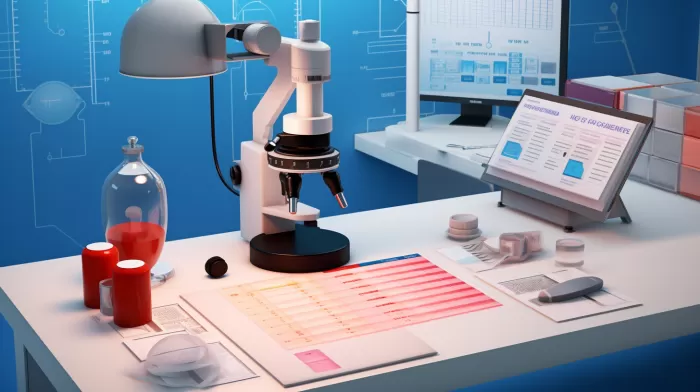In a man’s body, testosterone levels can vary, and surprisingly, a low testosterone level could be a bad sign, especially when it comes to prostate cancer. For some men with prostate cancer, particularly the slower-growing and lower-risk types, experts often recommend close monitoring instead of immediate treatment unless the cancer becomes more aggressive. Recent research, however, has found that having low levels of “free testosterone” can be an indicator of a greater risk of developing fast-growing prostate cancer.
Not All Testosterone is Equal
The hormone testosterone is primarily produced in a man’s testicles. It plays a crucial role in physical growth and development, including facial and body hair, muscle mass, voice deepening during puberty, and sperm production. There are two primary types of testosterone:
- Bound testosterone: This form of testosterone constitutes up to 98 percent of total testosterone in a man’s body. It is bound to proteins such as sex hormone-binding globulin (SHBG) and albumin, making it unavailable for use.
-
Free testosterone: Representing just 2 percent of total testosterone, it is not attached to any other molecules and is thus available for the body to use. Free testosterone plays a significant role in sexual health, energy levels, and muscle mass.
For many years, it was widely believed that high testosterone levels were a risk factor for prostate cancer, while low testosterone levels were considered protective. However, recent findings contradict this belief.
The Unexpected Link Between Low Testosterone and Prostate Cancer
Researchers at the Pontificia Universidad Católica de Chile have found that low levels of free testosterone in men with low-level prostate cancer could increase the risk of developing aggressive prostate cancer. According to researcher Ignacio San Francisco, M.D., these findings suggest that “low levels of testosterone are associated with more aggressive prostate cancer.”
In cases where there might be uncertainty regarding the proper course of action, particularly when it comes to initiating treatment or continuing observation, the presence of low levels of free testosterone may help doctors determine the best course of action for their patients.
Why Testosterone Levels Matter
Understanding the influence of testosterone levels on prostate cancer progression and aggressiveness is essential in determining the appropriate treatment options. For men with lower-risk cancers, avoiding unnecessary treatments and their potential side effects is crucial. However, if low testosterone levels indicate a higher likelihood of the cancer becoming aggressive, timely treatment is necessary.
It is important for doctors to assess patients’ testosterone levels during their regular check-ups or prostate cancer screenings, particularly if they have any of the following risk factors:
- Age: The risk of prostate cancer increases as men get older, especially after the age of 50.
- Family history: Men with a family history of prostate cancer (father, brother, or son) are at a higher risk.
- Race: African-American men are more likely to develop prostate cancer and have a higher mortality rate than Caucasian men.
- Diet: A diet high in saturated fats and red meat has been linked to an increased risk of prostate cancer.
How to Increase Free Testosterone Levels
If your free testosterone levels are low, there are several natural ways to improve them, including:
- Exercise: Regular physical activity, especially resistance training, has been shown to increase testosterone levels.
- Sleep: Getting adequate sleep is crucial for maintaining optimal hormone levels.
- Reduce stress: Chronic stress can significantly decrease testosterone levels. Practicing stress-reduction techniques such as meditation, deep-breathing exercises, or yoga can help.
- Eat a balanced diet: Consuming a healthy, balanced diet that is rich in vitamins, minerals, and healthy fats can improve testosterone production.
- Limit alcohol and drug use: Excessive use of alcohol and drugs can have a negative impact on testosterone levels.
The Bottom Line
While it was previously believed that high testosterone levels posed a risk for developing prostate cancer, research now shows that the opposite may be true—low levels of free testosterone could be a sign of more aggressive cancer. It is essential to monitor testosterone levels as part of regular check-ups and cancer screenings, particularly for those at a higher risk for developing prostate cancer. By understanding the impact of testosterone on prostate cancer, doctors can make better-informed decisions regarding treatment options for their patients.



